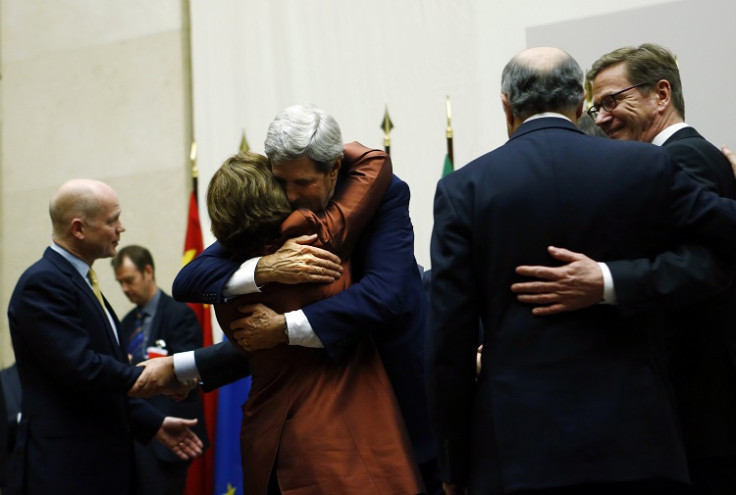Iran Nuclear Programme Deal Pushes Oil Price Lower

The fresh six-month deal with Iran to curb its nuclear programme has pushed benchmark oil prices lower as investors eye a glut of the energy source to return to the market place over the longer term.
After US President Barack Obama urged Congress not to impose additional sanctions on Iran, the Brent crude forward contract for February delivery fell below the $107 per barrel (bbl) mark to $106.91/bbl. Meanwhile, US WTI oil fell by 51 cents to $92.21/bbl.
Both contracts were trading higher on Friday 10 January.
Iranian sanctions have prevented around 1 million barrels of oil per day from reaching the global markets. However, the Iran nuclear programme deal has raised investors' hopes that a long-term pact could see the country resuming full exports.
"Obama's comments act in favour of Iran and contribute to more downside in oil markets given the potential inflow of Iranian barrels to oil markets," said Chee Tat Tan, investment analyst at Phillip Futures.
As of 20 January, a new interim agreement to freeze Iran's nuclear programme is set to come into force, while Obama has warned that more work needs to be done to strike a long-term deal.
"The foundations for a coherent, robust and smooth implementation of the joint plan of action over the six-month period have been laid," said Baroness Ashton, who represents the five permanent members of the UN Security Council - US, Russia, China, France and Britain - plus Germany in the talks with Iran.
Meanwhile, media reports have said that "Iran and Russia are negotiating an oil-for-goods swap worth $1.5bn (£1.8bn, €2.5bn) a month that would enable Iran to lift oil exports substantially."
Despite the uptick in oil prices, many traders remain cautious about the level of Iranian oil exports to hit the global markets.
"It's a tricky period for traders," said Mark Keenan, head of commodities research at Societe Generale.
"As we get through this period, things do tend to settle down a bit."
Nomura's chief political analyst Alastair Winter also added that "I've seen nothing which suggests that the embargo on crude exports (as opposed to petrochemical products) is about to be eased - indeed, quite the contrary according to the US State Department; so, in terms of supply and demand this looks to be neutral (and should not therefore weigh heavily on upcoming Opec deliberations)."
"However, this does not rule out the possibility of some easing of the price of Brent relating to a perceived decline in geopolitical risk to oil."
© Copyright IBTimes 2024. All rights reserved.






